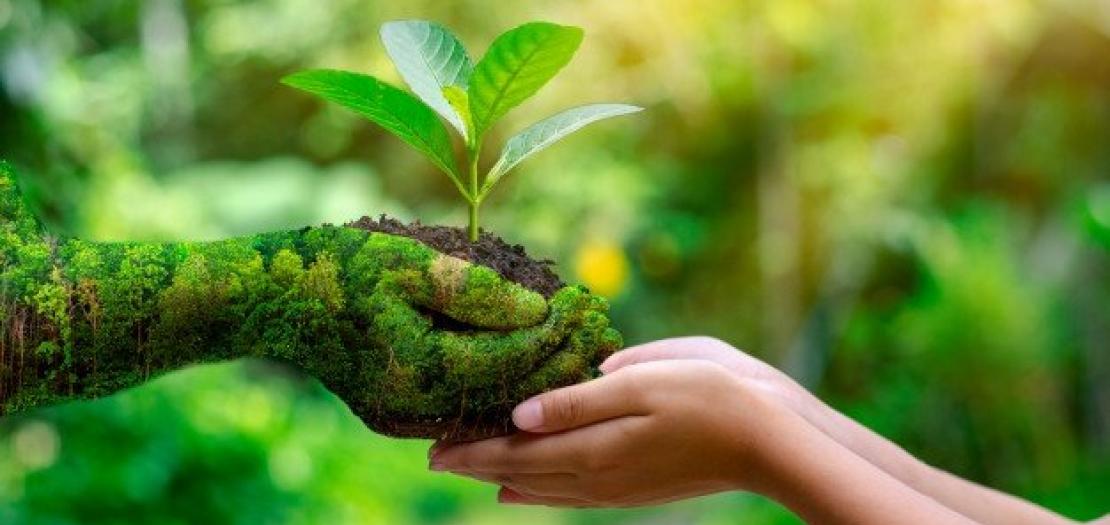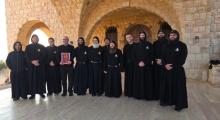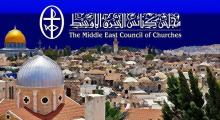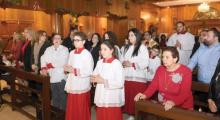Issued by the Catholic Center for Studies and Media - Jordan. Editor-in-chief Fr. Rif'at Bader - موقع أبونا abouna.org

It is not new for the Church to take a step towards the environment, God’s creation, to protect or preserve it. Throughout history, the Church addressed many issues related to the environment and Earth, still placing them today at the center of its priorities.
The environment needs us humans and vice versa, and preserving it is one of the most urgent issues, especially amid the aggravation of crises negatively affecting it. The environment is in dire need of consistent care, it needs human intervention to help it grow in the essence God created.
The believer is considered the shepherd of the entity leading all beings to God, according to the description of His Holiness Pope John Paul II, especially since they need to reach the Creator. This is the responsibility of the believer, the only person who sees the purpose of creation. Therefore, quoting the Middle East Council of Churches the Secretary General Dr. Michel Abs from the message he shared on the last World Environment Day, on June 5: “The Church of Christ is concerned with the natural environment as much as it is concerned with the environment of faith and human values, it cannot stand by and watch people destroy their natural surroundings, the environment the Creator has endowed him with, in order to grow and live.”
From here, the Church and its institutions raise their voice every time, especially on World Environment Day, condemning any kind of violence and indifference towards the environment, calling on all the inhabitants of Earth to be vigilant and abide by the necessary human values. “The heavens declare the glory of God, and the sky above proclaims his handiwork. Day to day pours out speech, and night to night reveals knowledge. There is no speech, nor are there words, whose voice is not heard.” (Psalm 19:1-3).
Laudato Si: For a Better Environment
You may have heard or read the phrase "Laudato Si" (Be among those who praise) in more than one station, but did you know what meanings it carries? Do you realize its dimensions in terms of life and the environment? It should be noted that His Holiness Pope Francis is keen to protect the environment through the attention he attaches to it. In 2015, he issued a Papal Encyclical under the name “Laudato si’” that focused on caring for our shared home. In the introduction, he considers that “among the poor, who are most neglected and abused, there is the oppressed and devastated land, which is “groaning in labor pain” (Rom 8:22). We forget that we, too, are dust (cf. Gen 2:7). We are made of Earth, its air is what we breathe, and its water is what refreshes and renews us.”
His Holiness, who chose the name of the encyclical from the hymn of St. Francis of Assisi, offered an in-depth approach on the subject in addition to several practical advice to contribute to the protection and construction of our shared home, to develop our way of life towards a more sustainable future. He called to adhere to several details that might make a big positive difference, like wearing extra clothes and avoiding the use of heating, for example, avoiding the use of plastic and paper materials, reducing water consumption, sorting waste, cooking only the necessary amount of food, dealing with care with other living creatures, resorting to public transportation or sharing one car among a group of people, planting trees, turning off unnecessary lights...
His Holiness Pope Francis not only offered these tips and explanations in order to motivate the population to take an interest in the environmental issue, but also presented, in the context of the message, some ideas that push man to work for a better environment, as he considered that all human beings can cooperate as God’s tools and care for creation, each according to his culture, experiences and initiatives. and his capabilities. He saw that today we can only recognize that every correct ecological approach always turns into a social one that urges the inclusion of justice in discussions of the environment in order to convey the cry of the Earth and the cry of the poor alike. He also called for promoting awareness, we are one human family where there are no boundaries that allow us to isolate, and thus reach the globalization of indifference. He also remembered the youth among his ideas, as he praised the environmental awareness they have with a generous spirit as they make their efforts to take care of and defend the environment.
Natural values in Christianity
The message of His Holiness Pope Francis “Laudato Si” was not the only ecclesiastical initiative to protect the environment in modern history, but it came to deepen many other initiatives. In 2002, for example, the views of the Catholic and Orthodox Churches converged in the philosophical and ethical orientation that considers that ontological entities with movement and vitality can be given a moral value on the basis of their existence. That is why a joint declaration was issued by His Holiness Pope John Paul II and His Beatitude Ecumenical Patriarch Bartholomew I, named "Patriarch of Greens" on June 10, 2002 urging a re-focus on environmental ethics in Christianity.
According to the sources, this declaration came to “harmonize and even lay the moral foundations for the Third Millennium Promises made in September of the year 2000 at the United Nations House in New York,” where it focused on God who created a world of beauty, harmony and love where He placed a man with eternal spirit, free, aware and in His image. People cooperate with the Creator to achieve the supreme goal of creation... but after his fall, the destruction of homogeneity was a consequence. Social and environmental crises were the result of betraying the divine mandate to cooperate with God and pursue Creation in holiness and wisdom. God’s will was to restore the lost balance to creation by activating the relationship between the Creator and the human race. Therefore, the Declaration emphasized that respect for Creation stems from respect for human life and human dignity.
The Orthodox Ecumenical Patriarchate never stopped participating in this initiative, as the Orthodox Church began to highlight the issue of the environment with His Holiness Ecumenical Patriarch Demetrius and then his successor, His Beatitude Patriarch Bartholomew who called for repentance and confession of sin ever since he took up the service. A crime against nature is therefore a crime against ourselves and a sin against God.
Ecumenism and Nature Around the World
Besides the Church, the ecumenical world is also concerned with the issue of the environment, as it witnessed the birth of environmental theology - or eco-theology, and the Green Church. This urgent issue has been at the center of the agenda of Ecumenical organizations around the world for decades.
In the East, the Middle East Council of Churches is preparing to launch several agricultural projects, considering that agricultural growth and rural development are according to Secretary General Dr. Michel Abs’ words on the occasion of World Environment Day: “The main key to reforming the socio-economic life that has witnessed serious transformations in the countries of the East.” The environmental protection and agro-rural development are a fundamental challenge for the Council, calling on ecclesiastical bodies and civil society to cooperate in order to face this challenge, which it has taken very seriously.
The Middle East Council of Churches is also in the process of Arabizing a special brochure entitled “The Season of Creation” - Celebration Guide for 2021 - A Home for All? It is the renewal of Oikos Allah, meaning the house of God, prepared and issued by many international Ecumenical institutions to be approved as a guide for activities to be launched and supervised by the Council during the period called the “The Season of Creation” between September 1 and October 4, 2021. The booklet will be distributed after its translation and includes prayers, meditations, and seminars, raising the level of environmental awareness for a better tomorrow for new generations.
On a world scale, the concern for creation and justice is at the heart of the work of the World Council of Churches, seeking to prevent climate change, starting from the teachings of the Bible where “The Lord God then took the man and settled him in the Garden of Eden, to cultivate and care for it.” (Genesis 2:15) and he became the God of justice who protects, loves, and nurtures his weakest creatures. The Ecumenical vision sponsored by the Council aims to overcome the current global development model that threatens the lives and livelihoods of many.
The World Council of Churches has been working since the 1970s to develop the concept of sustainable societies, as it has also been present in all United Nations conferences on climate change ever since the adoption of the Climate Change Convention in 1992. Over the years, the Council has contributed to strengthening the movement for Climatic justice affecting millions of people around the world... In addition to the many successive environmental projects implemented, one of which the Green Village, a project the Council is working on to provide buildings and offices to be built in the Swiss capital, Geneva, in a safe. environmentally friendly.
His Holiness Pope Francis announced in 2005 the establishment of a World Day of “Prayer for the Care of Creation” to be celebrated on the first of September of each year, in partnership with the Orthodox Churches who have been celebrating it since 1989. This year, The United Nations Decade on Ecosystem Restoration was launched. In the encyclical of His Holiness Pope Francis for the occasion, read by Cardinal Pietro Parolin, Secretary of State of the Vatican City through video for participants, he wrote: “It is our responsibility to leave a shared habitable home for our children and for future generations.”







